When biathletes Lanny Barnes and her twin sister Tracy decided to retire from the Olympics, they were experts at shooting under extremely demanding conditions — a skill set that didn’t translate into traditional employment opportunities, but fit tactical training like a glove.
Known as “Lanny Oakley,” Barnes competed in the 2006 Olympics with her sister and joined the team again in 2010 and 2014. Lanny actually missed qualifying for the team in 2014 due to illness, but Tracy made the cut and gave up her spot for her sister.
Aside from being a force in professional 3-Gun events, and working as the director of sales for HIVIZ Shooting Systems, Lanny teaches military, law enforcement, competitive shooters, and hunters how to shoot accurately with an elevated heart rate — like 180 beats per minute elevated. Her sister is a partner in their tactical instruction endeavor.
Free Range American caught up with Lanny to discuss her and her sister’s earliest shooting experience, how Olympic biathlon is like hunting, million-euro German biathletes, and being a positive role model for women.
RELATED – Ride Hard, Shoot Straight: A Veteran Discovers Cowboy Mounted Shooting

This interview has been edited for length and clarity.
Free Range American (FRA): How did you get your start in biathlon? Where did the interest come from?
Lanny Barnes (LB): Tracy and I started in high school. We had kind of been doing small-bore prone competitions. For two really active girls, it was a little bit too much being down in the same position for too long for us. We actually ran to a guy that was working with the US biathlon team, and he was like, “You girls would love this sport. It’s active, it’s kind of shooting on the fly.” So we signed up for it, and really just fell in love with it.
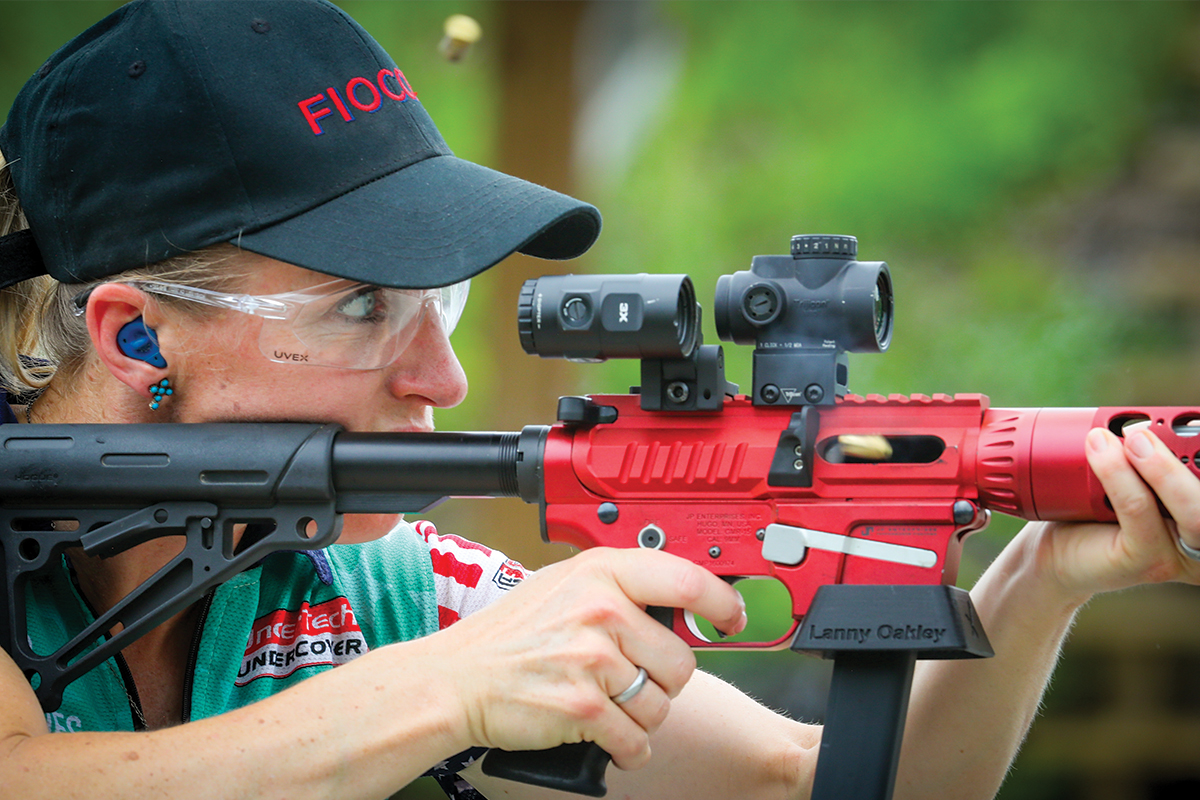
FRA: From high school to the Olympics in less than 10 years — that’s a steep learning curve.
LB: We started a little bit late. A lot of the people we’ve skied against have been skiing their entire lives. But we picked it up pretty quickly and made our first Olympic team in 2006. In 2010, Tracy just barely missed making [the] team because of a race being canceled due to weather. Then, in 2014, we were both heavy favorites to make the team and I ended up falling ill at the final trials. She made the team, and then turned around and gave her spot up to me so that I could go.
FRA: Deedra Irwin just posted the best finish ever for an American in the event, but the US has never medaled in biathlon at the Olympics. Why is that?
LB: The Europeans are so incredibly dominant. [Biathlon] is so obscure here in the United States that there’s very little funding for it. Our Olympic athletes are maybe living off of $2,000 to $3,000 a year from the US Olympic Committee. The best-paid German and European biathletes are making over a million euros a year.
It’s not impossible, though. It comes down to training and how much grit you have. Deedra put forth one of the best Olympic performances ever. She would have been second or first if she would have hit that last target. We’re right on the edge of getting there. I was very close to the same position as Deedra in 2010. But it’s gonna happen soon. It’s a matter of time.
RELATED – How Shooting an MP5 Can Make You a Better Archer
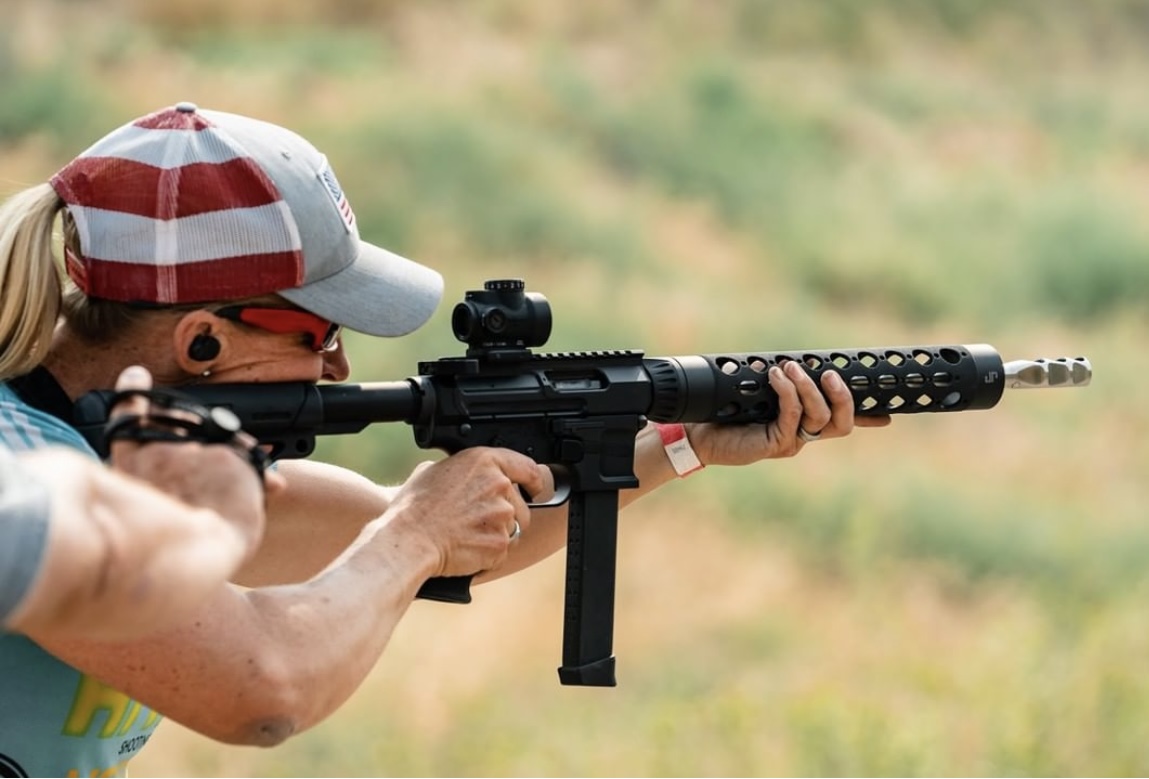
FRA: Tell me a little about the rifles you shoot in biathlon.
LB: They’re very, very specialized and there’s really only one company in the world that makes one that’s good enough to compete at the highest level: Anschütz. They’re upwards of $5,000, so they’re expensive but they’re very good. They work well in the cold. They’re light but not so light that when you come into the range for offhand it blows you around and you can’t hold on targets. It’s also a straight-pull bolt. So you could get going pretty fast to where it almost sounds like a semi-auto, but you’re actually manipulating the bolt in between each shot.
FRA: You’ve hunted pretty much your entire life. That had to help your biathlon success.
LB: My dad — hunting is his biggest passion. He had three girls, so he passed that on to us and you know, Tracy and I really fell in love with it. For us, biathlon was as close as you can get to hunting in the Olympics. The sport actually originated as a form of hunting on skis. That definitely drew us to the sport.
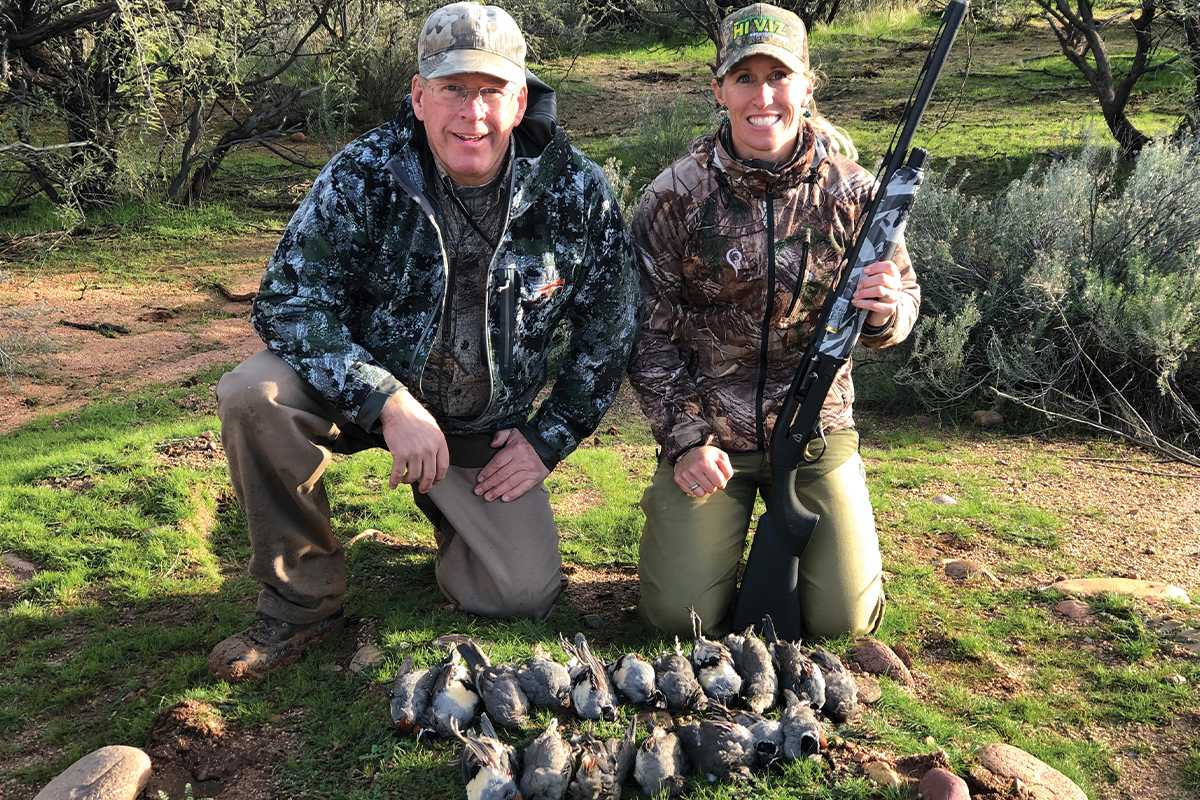
FRA: Favorite game to hunt?
LB: That’s a tough one. I think my two favorites are elk in Colorado and then quail in Arizona. Those Gambel’s (quail) are so fast, at least where I hunt. They’re so hard to chase down, but it’s a lot of fun.
FRA: Did you know what you wanted to do when you moved back into “civilian” life after 12 years of Olympic focus?
LB: After Tracy and I retired from the Olympics, we retired with a very specific skill set: knowing how to shoot with an elevated heart rate under extreme stress in front of 100,000 people and TV cameras and things like that. So we basically took those skills and adapted them to military and law enforcement, as well as civilians. We help translate those skills into what other people are doing in their daily lives. We’re heading down this weekend to teach a course to the Fort Worth PD.
FRA: Women are a force equal to men in shooting sports. Do you see any pushback when you’re competing or instructing?
LB: I think the shooting world, in general, is a little bit more forgiving than some of the other sports out there. It comes down to people being open to the fact that it doesn’t matter what your sex is, as long as you can hit the target. I’ve had a few guys challenge me on that — and there are times where I beat them and times where I haven’t.
I enjoy the idea of competing against men, but really, at the end of the day, I just want to beat the best shooter. I don’t care who it is. If the best shooter is Lena Miculek, I want to beat her. If the best shooter is her dad, Jerry Miculek, I want to beat him. I just want to be the best I can be and then also try to become the best shooter in the world, regardless of whether I’m a man or a woman.
RELATED – Learn the Shotgun Sports Like Olympic Trap, Skeet, and Sporting Clays
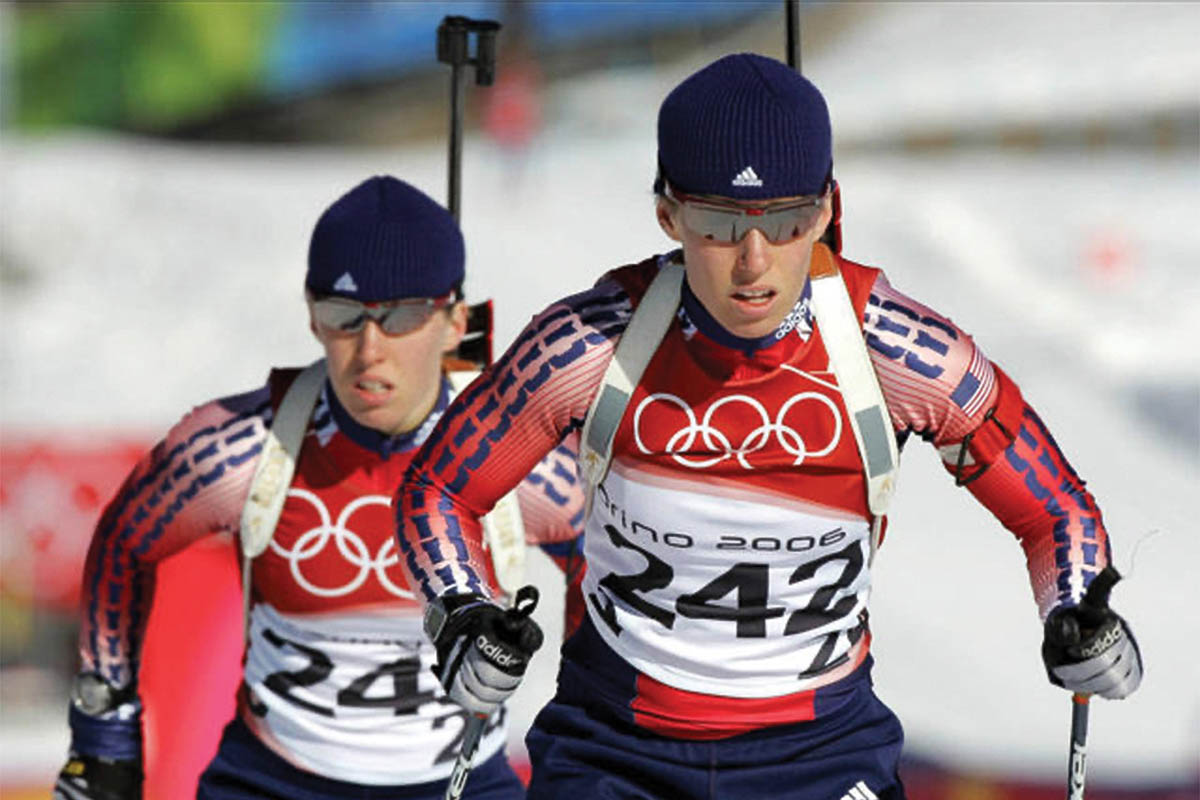
FRA: You have a big presence on social media. How do you feel about being a role model who empowers young girls and women?
LB: I think that’s one of my biggest passions. These days, it’s tough for young women to find good, positive role models. I think too many [role models] are succumbing to pressures of money or different things like that. For me, the ultimate goal is to pass on the passion for following your dreams and setting goals. Whatever you decide to do, do it to the best of your ability.
Tracy and I do a lot of work with Boys and Girls Clubs, you know, Girl Scouts, Boy Scouts, different organizations all over the country, we give inspirational speeches to schools on how to lead healthy, active lifestyles, and follow your dreams. Those types of things, I hope, go a little bit further than just social media.
FRA: Who do you look up to?
LB: That’s really easy: Kay Miculek, Jerry’s wife. She’s one of those people who just doesn’t get enough credit. She paved the way for women in shooting sports. She was out there beating the guys and winning world championships and things like that way before it was actually okay and more and more commonplace. She’s very quiet, reserved, and humble, but she can beat the best of them. She has nerves of steel and definitely has given me a lot of inspiration over the years.
READ NEXT – Olympic Air Rifle and Skeet Athletes Shoot Lights-Out in Tokyo

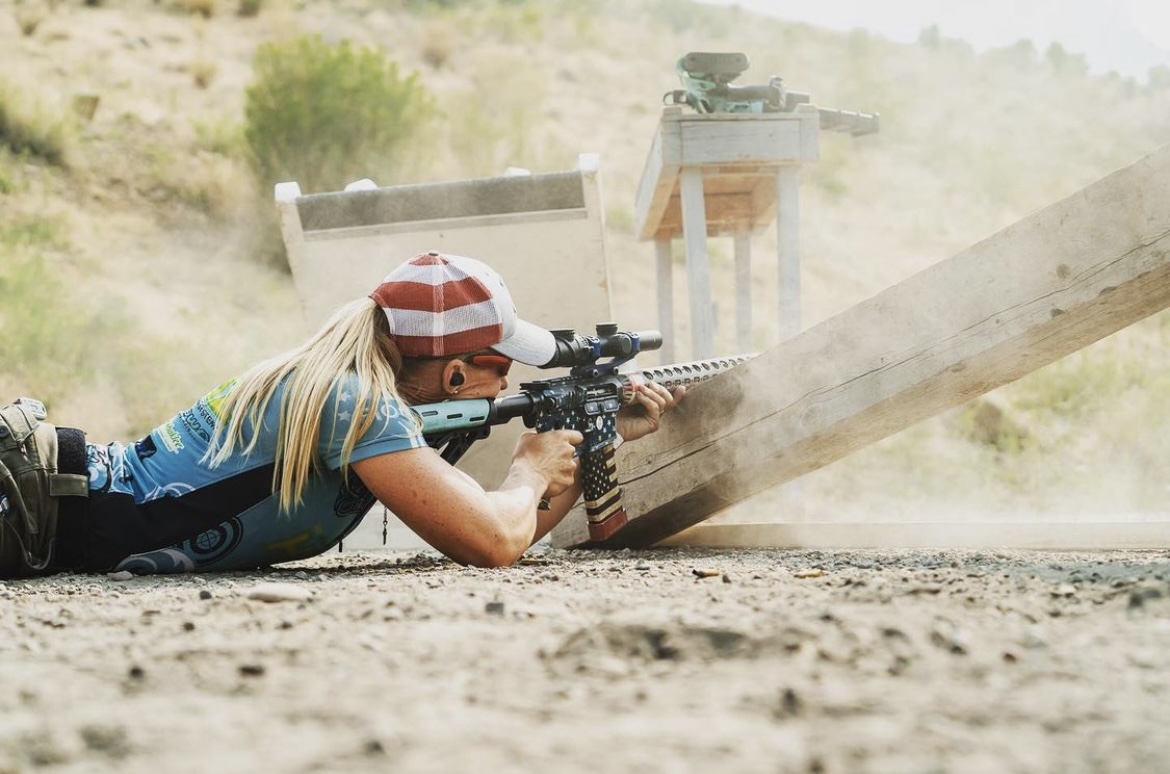
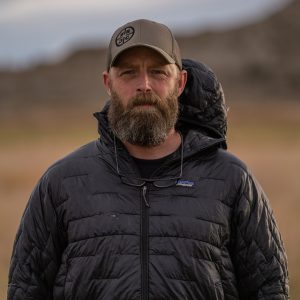
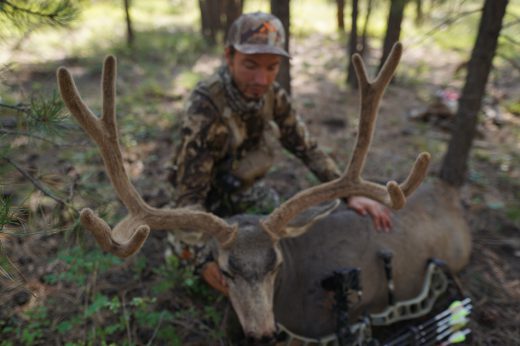
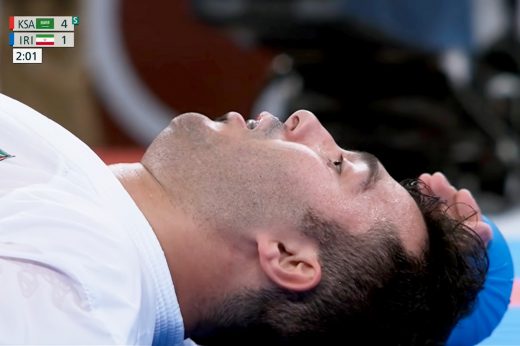
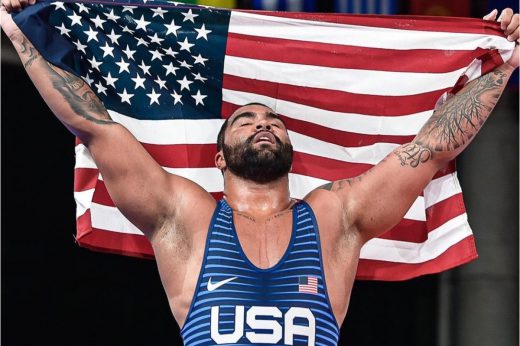


Comments